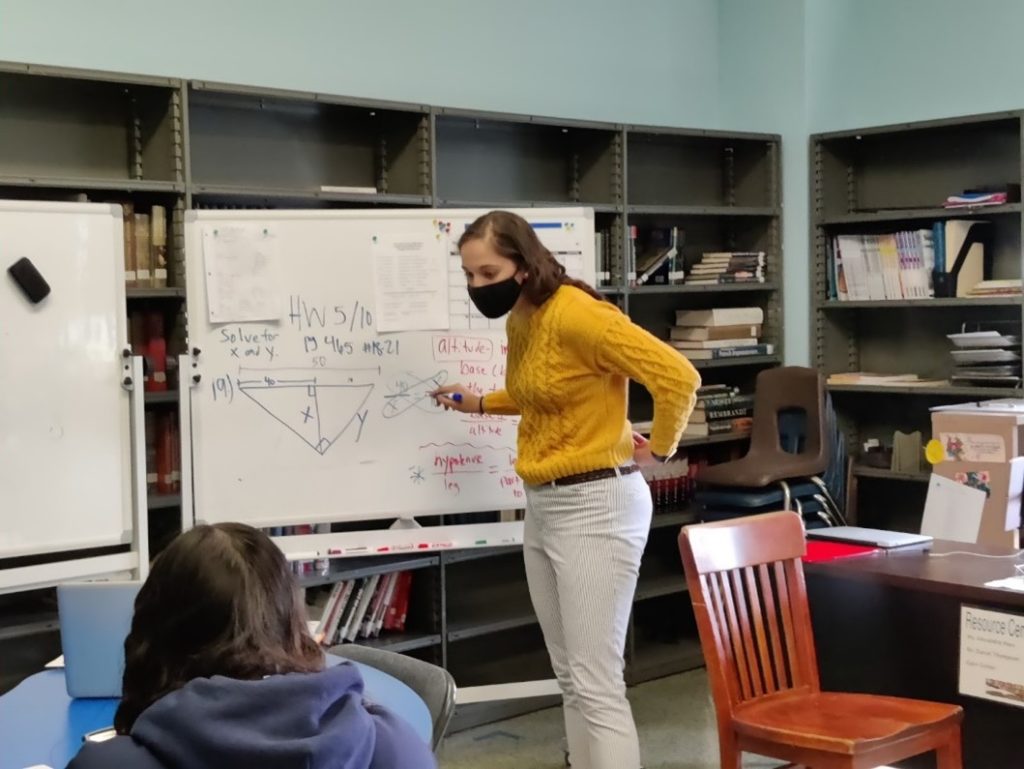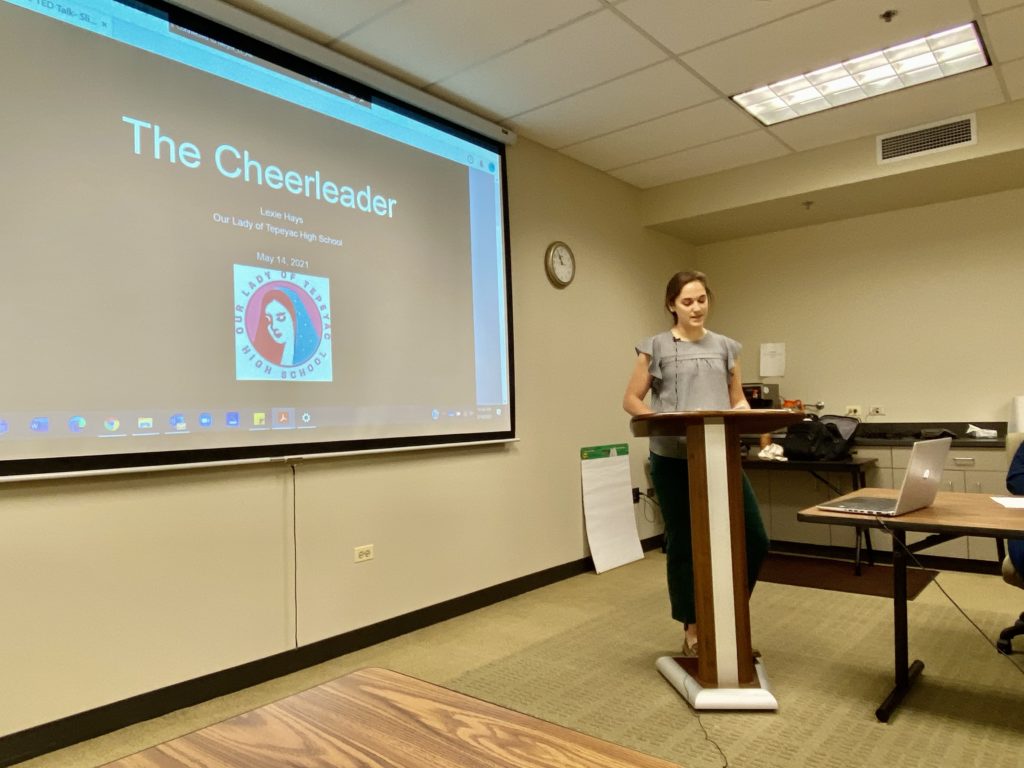Adapted from her “TEDxAmate” presentation on May 14th
I’ve spent the last eight or so months going into school each day, wondering what that day might bring. Sometimes this was reteaching a geometry lesson; other days, it was teaching girls how to open their lockers or driving the volleyball team to McDonald’s after a big win. Most days, it was listening to stories about pets, Youtubers, Dunkin’, and Tiktok before I could get the girls to do even the smallest amount of school work. No task was too trivial in my self-proclaimed role of the cheerleader.
I’ve seen places for personal & professional growth and improvement in my time at Our Lady of Tepeyac. I’ve read articles on education reform, had professional development about equitable grading systems, skills we want our graduates to possess, and many topics in between. What I was never formally taught was the power of a personal relationship and connection with students. Small classes at Our Lady of Tepeyac allowed these relationships to blossom. Being in an environment where I saw these relationships between students and teachers, principals, and even the president of the school, allowed me to follow suit in taking a genuine interest in students as human beings rather than just as the grade that she receives, the quality of her work, or the amount that she distracts the other girls during class.
I spent months trying to figure some kids out. “What motivates her? Does she work harder if there are rewards or consequences? And sometimes, How do I get this kid to care about her grades?” These were some of the questions that I continually asked myself. Moments of frustration, fear for their futures, doubting of my competency all settled in as I tried my best to use textbook “strategies” to get through to some of my students. To avoid burnout, I eventually had to let go of some of the daily agendas that I believed the girls should complete to keep up with their school work and began to do more of an informal check-in. Rather than having the girls get right to work, I began to sit down with them and just chat for a while. The girls began talking about their frustrations or the best part about their weekends and sometimes even asked about mine. This felt like I was actively working against my goal of academically supporting the students. But for some of my students, it was not until I had formed a connection with them that I started to see progress with the students I had the most difficulty getting through to. These same students slowly became more and more willing to work.

I think it is important to note that most of my students have specific learning disabilities and processing disorders, which will always make learning challenging. Others don’t receive the support that they need to succeed at home. Some students work against both of these challenges. They aren’t always taught that they can do many things that they set their minds to and work hard at. They don’t believe in themselves or might not have a familial figure to look up to or follow in the footsteps of. They don’t always hear “you can do this” and “I’m proud of you.”
Our seniors went on a Kairos retreat in March and teachers were able to write letters to the students to show our care and support for the students. The girls read these letters during the retreat. One of my seniors came back to school the next week and she gave me a very surprising and heartfelt “thank you for the letter.” This may seem insignificant, but this is the same girl who openly told me she was not happy to be in a class with me on the first day of school. So we’ve really come a long way since then. She continued by saying “I don’t hear that people are proud of me often.” These personal relationships are where I feel that the impact of education comes from. Connections allow students to feel important, valued, and safe in their schools. They take responsibility for their education and therefore their futures. For many students, education is the opening of a door of opportunity to access a world that has been largely, and intentionally, inaccessible to them.
At the same time, these relationships are what so many children across the world have missed out on in this year of remote learning. I feel that it is important to recognize that behind each success story, there are hundreds and maybe even thousands of CPS students, who are falling behind in their schoolwork, largely due to a lack of support and nurturing from the school faculty and staff. The education field is in for a wild ride in the coming years as it addresses the disparities in knowledge obtained from these last two school years
In all of this, I’ve really learned to celebrate the small victories; to let students know that they are noticed and any amount of growth is worth celebrating. Our students must know that there are adults who won’t give up on them and will unconditionally be there for them, much like the cheerleaders who are still cheering on their team at the end of the 4th quarter, even when a loss is looming in the background. The confidence that this support builds begins to grow inside of the students and is something that will go far beyond the walls of the school.
This is why I pursue education and this is why I’ll happily be the cheerleader for my students on any given day.


